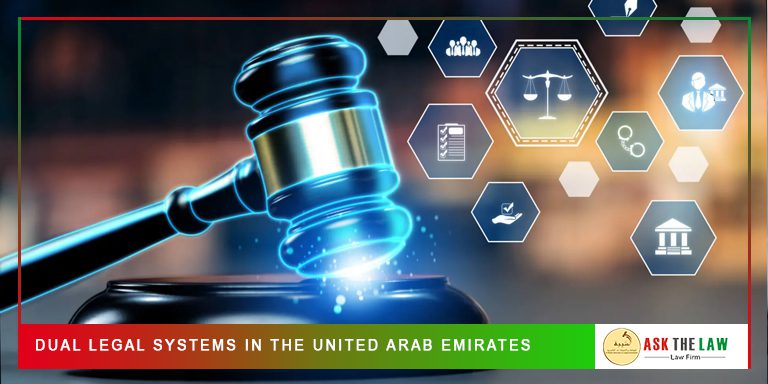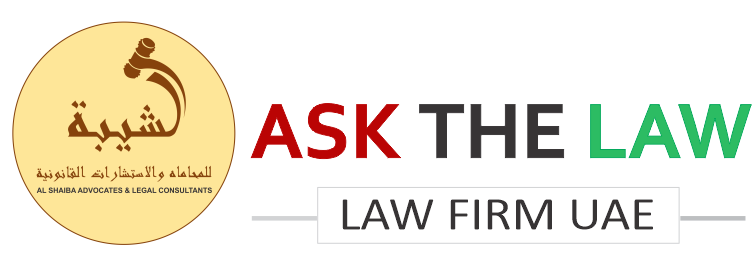
Dual Legal Systems in United Arab Emirates
UAE is a global hub in trading, tourism, and trade relationships with other nations. The UAE has developed a policy of dual legal system. This has gained prime attention in recent years. The legal framework of the United Arab Emirates is a combination of civil laws and Islamic law. As we know UAE is an Islamic country thus, it is obvious that Sharia principles are used to govern a lot of practices and actions. Therefore, the UAE has a dual system that incorporates everyone from various backgrounds, ethnicities, religions, and cultures. If readers need a one-to-one session with our experts, then they can setup the legal appointment with our senior Emirati lawyers and legal consultants. This dual legal system combines the sharia laws and civil laws in a beautiful manner. The country has a hybrid legal system that strikes a balance between traditions and contemporary legislative models. All the credit goes to UAE law making departments. UAE has emerged as a modern nation that introduced systems that address both local and international needs efficiently.
What is Dual Legal Systems of UAE
The hybrid system of UAE incorporates UAE nationals, expatriates, foreign investors, legal professionals, foreign tourists, and others into it. The dual system in UAE navigates through the professional, personal, legal, and other important aspects within the legal framework. The UAE has included all the legal aspects into the system and this has resulted in various benefits. It saves time, money, and resources and represents legal complications.
A Federal Structure
The legal structure of the UAE operates mainly under the federal structure. UAE is based on 7 emirates such as Abu Dhabi, Dubai, Sharjah, Ajman, Umm Al Quwain, Ras Al Khaimah, and Fujairah.
Every emirate has full authority over its legal system. However, they must adhere to the federal laws of the UAE. The dual legal system mainly operates under the 2 level, federal and local levels. The entire dual system is made up of a civil law system and Sharia principles or Islamic law.
Civil Law Systems in UAE
The civil law system is based on codified statutes, laws, rules, and regulations. Normally French, Egyptian, and Roman legal laws, traditions, and practices inspire the civil laws.
Sharia Law Systems
On the other hand, the Holy Book of Muslims influences Sharia principles. The Holy Quran guides it, which is a sacred book of the Islamic faith.
Primarily, the Islamic jurisdictions are deeply rooted in the Quran, Hadith, and Sunnah. It provides a comprehensive guideline for family law, personal status law, inheritance law, and other aspects of life.
Objective of Dual System: Tolerance and Co-existence
The prime objective of introducing the dual system in UAE is for co-existence, acceptance, and tolerance. The UAE as a nation tries to maintain a right balance between centuries-old traditions and modern-day practices.
The emergence of two different systems in UAE
This forms the backbone of the legal governance within the Emirates. The 2 systems that are practiced in UAE play a distinct role. The role depends upon the nature of the case. The Federal and Local Jurisdictions emerge together and provide guidelines over various legal matters.
There are several central bodies that legislate and adjudicate laws at the federal level. It includes the Federal Supreme Council, Federal National Council, and Federal Judiciary in it. All these institutions jointly enforce the rules and laws in all the 7 emirates of UAE. However, where the emirate has opted out an exception.
Legislation in Dubai, RAK and Abu Dhabi
Dubai has its own independent judicial system. Similarly, Ras Al Khaimah and Abu Dhabi, also have their own autonomous federal system. This refers to the practice that courts operate separately from the federal judiciary system. But the Federal Supreme Court is in ABU DHABI.
Nevertheless, Dubai has its own Dubai courts mainly for criminal and civil matters. Furthermore, Dubai International Financial Centre (DIFC) Courts also operate within the city, which operates under the English common laws.
Understanding the jurisdiction is often a complicated matter, which requires the assistance of a legal professional. Therefore, a great number of people contact the lawyers in Dubai. They provide legal support to people based on federal, local, and DIFC jurisdictions.
Incorporation of Sharia principles within the Legal System:
Primarily, the Sharia principles are derived from the Holy Quran, Hadith, and Sunnah. It is mainly applicable to personal status matters like marriage, inheritance, divorce, guardianship, child custody, and other crucial aspects.
For all the Muslims inside the UAE, the matters are resolved via Sharia-based rulings. Irrespective of backgrounds, nationalities, and cultures, all Muslims adhere to the Islamic law. On the other hand, the non-Muslims are exempt from it. All credit goes to the recent legal reforms in the legal system of the UAE.
New Laws for Non-Muslims
The changes offer greater flexibility and liberty to the non-Muslims. This practice enables them to choose their home country’s laws and rulings for various personal status issues. Moreover, the Sharia laws are often extended to various facets of criminal laws, especially for alcohol-related issues.
This attempt is made to modernize the legal system of the UAE. Furthermore, efforts are dedicated to align the local laws with the international best practices. Considering the large expatriate population, these reforms are introduced in UAE.
Civil and Commercial Law
Civil and commercial laws of the UAE are normally different from criminal law. The matters such as contracts, property disputes, corporate law torts, employment matters, and more are a range of non-criminal issues that are governed by the European civil law models. In the UAE, understanding the free zones, offshore jurisdictions, and public-private partnerships is essential.
Read More: Citizenship Law in the UAE
FAQ’S


